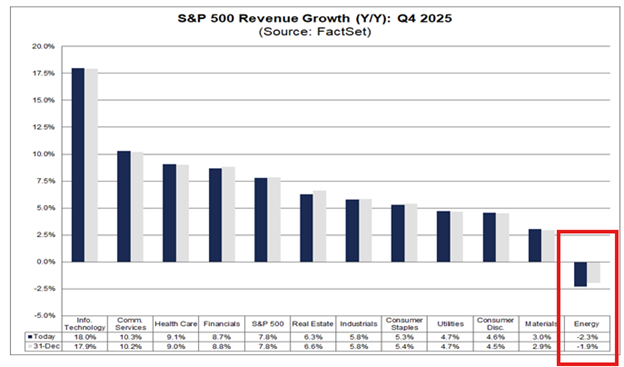The mid 2000s saw a new intellectual movement emerge on the scene under the name of “New Atheism.” Representatives of the movement saw themselves as champions of the scientific method, of evidence-based reasoned analysis of the facts against the mystical, primitive superstitions of organized religion and all the societal, political and cultural harm it allegedly produces. While they were going on about their business, an intellectual movement that is more primitive, mystical, superstitious, dangerous, harmful and despicable than the most denunciatory descriptions of religion made by the most fervent atheist has steadily solidified its near-monopolistic position in western culture and society. A specter is haunting the west—the specter of group egalitarianism.
Knowing the enemy
Only a very brief formulation of the group egalitarian doctrine and its ideological implications can be done in this article. The idea that every individual human is equal in all abilities and traits is too self-evidently ridiculous to earnestly believe, so what the group egalitarians do is simply push the issue back one layer—believing instead that each group of humans is actually equal. These two beliefs are in reality identical; one necessitates the other. If individual human beings are unequal, then the groups consisting of those human beings are also unequal—and vice versa. Group egalitarianism isn’t any less ridiculous or self-evidently wrong than individual egalitarianism, but the slight process of abstraction necessary to form the concepts of different groups is seemingly all that is necessary to cloud and obfuscate this fact in the mind of the modern progressive.
Now comes the central issue: if all groups are equal, how come there are wide varieties in outcomes in every conceivable area of social activity between every conceivable group of human beings? For progressives, the explanation lies in their theories of social power dynamics. These theories divide societies into oppressors and the oppressed. The determining factor for which category any given group falls into is its degree of societal dominance and influence. Groups that are identified as broadly holding said dominance and influence in a society are designated as the Oppressor Group, while the rest constitute the ranks of the oppressed (or the “marginalized”).
What does this oppression consist of and what are its origins according to the progressives? Simply put, it consists of allegedly repressive and domineering social norms and attitudes, along with outright legal discrimination and state sanctioned violence. The origin of these horrible atrocities?—the Designated Oppressor Groups created them, of course. It’s all their work. After all, they’re the only ones who are able to create and perpetuate norms, customs and laws anyways; everyone else is far too powerless and marginalized for such a task.
The “repressive cultural and social norms and attitudes” progressives decry are not just the outright open racism, sexism, xenophobia, homophobia etc. which one can easily point to and identify. For them, it’s much more complicated. What they’re battling against is any social norm and attitude which differentiates a group A from a group B when informing one’s value judgments. Since progressives view all groups as intrinsically interchangeable, and only made different via environmental factors; for them it follows that any and all norms and dispositions which rely on viewing them as different are inherently arbitrary—and very frequently harmful, oppressive, and prejudiced towards the marginalized groups.
These norms are so woven into everyday society that those who perpetuate them don’t even know of their “implicit bias” and prejudice against marginalized groups (if members of marginalized groups perpetuate them themselves, they’re said to have “internalized prejudice” against their own group). The allegedly gargantuan negative effects that the norms and legal precedents of the dominant society have on the marginalized (from “microaggressions” to “systemic discrimination”) are what stands in the way of them being on par with the success of the Oppressor Groups. The task of the progressive is to uncover and bring attention to these attitudes, behaviors, mechanisms and institutions. Most of them seem innocuous and trivial to your average person, but not to the progressive. They have the social awareness necessary to allow them to identify these “oppressive forces” and the harm which they claim springs from them (this is what being “woke” refers to—an awareness of what progressives deem as “social injustice”).
What if a member of an Oppressor Group points to a norm or law which he claims negatively affects him as a member of that group? Progressives deny any possibility of such an instance. According to them, the Oppressor Groups created the very thing he’s complaining about in the first place; so to assert that it could possibly affect them negatively is nonsense (one of the seemingly infinite non-sequiturs contained within any group egalitarian worldview). In fact, the very act of making such a complaint is met by mockery and derision by the progressives via the laughably ironic accusation of “wanting to be oppressed really badly.”
Any of these “repressive norms and laws,” then, can only negatively affect the marginalized according to the progressive—and they’ll use all the clever rhetorical tricks at their disposal to argue for this claim. So, for example, if a man is being mocked or criticized for acting feminine, that’s an example of a “misogynistic implication that acting feminine is bad.” Conversely, if a woman is being mocked or criticized for acting masculine, that’s an example of “misogynists telling a woman how she can and can’t act.” Almost anything can be interpreted as racist, sexist, ableist, classist, heteronormative etc. if you make the case sound convincing enough to at least someone; this is how you end up with classics such as “The Unbearable Whiteness of Hiking.”
What of blatant resentment or prejudice by members of the marginalized toward one or more of the Oppressor Groups (which would be a predictable result of hammering into them the idea that such groups are inherently culturally biased and prejudiced against them and are to blame for their shortcomings)? The more radical progressives will tell you this doesn’t constitute racism or sexism or classism or what have you because the marginalized do not have the “systemic power” to engage in those behaviors, while the softer progressives will agree to describe it in those terms but say that it ultimately doesn’t matter much because hatred of the oppressors by the marginalized isn’t “socially impactful.” To sum up, behaviors and attitudes from the Oppressor Groups which are seen as completely innocuous by the bulk of society constitute horrible repressive “implicit biases and prejudices” that need to be identified, psychologized and eliminated for the cause of social justice; but open hatred by the marginalized can safely be handwaved as irrelevant.
The theory of “intersectionality” ties this whole project together, claiming that the intersection and overlap between one’s (either marginalized or oppressive) social identities determine where one is on the Oppression Olympics totem pole. The more marginalized identities you have, the more qualified you are to speak on the topic of “social justice” due to your “lived experience” (what in the world is a non-lived experience?) of enduring discrimination. What can you do if you’re a member of one or more Oppressor Group and are a supporter (in their terms, an “ally”) of social justice? “Decenter” yourself and let the marginalized take the lead while you spread the message in the background. Can one overcome their marginalized status through their own effort? No, that’s “pull yourself up by the bootstraps” nonsense; the issue is systemic in nature.
Anti-meritocracy envy
The complete intellectual bankruptcy of this whole doctrine should be clear. To view differences in outcomes between groups as inherent evidence of domination and oppression of the less successful group by the more successful is an error; those differences can and do happen naturally and organically (this is not to deny the historical and present existence of oppression and domination). To view different social norms and stereotypes associated with different groups as inherently arbitrary, harmful and created by the more successful to subjugate the rest is an error (this is not to say that all social norms and stereotypes are automatically useful and accurate).
Despite their pretenses about “compassion for the marginalized,” what these false starting points followed with ridiculous non-sequiturs, psychologizing and wishful thinking betray in their believer is a deep sense of envy. At the fundamental level, these doctrines identify success with oppression; an anti-meritocratic doctrine through and through. It’s difficult to describe the evil contained within a worldview which blames the successful for the shortcomings of the less successful. Ayn Rand identified the phenomenon as “hatred of the good for being the good”—hatred caused not by someone’s vices, but hatred of a person for possessing a value or virtue one regards as desirable.
Envy is a potentially very dangerous emotion; it played a large part in the genocide of the Tutsi (which dominated Rwandan society despite being only 14% of the population) by the Hutu. Don’t be fooled by the prestige of the academics propagating the group egalitarian doctrine—it is the primitive superstition of our age.
Full story here Are you the author? Previous post See more for Next postTags: Featured,newsletter

























